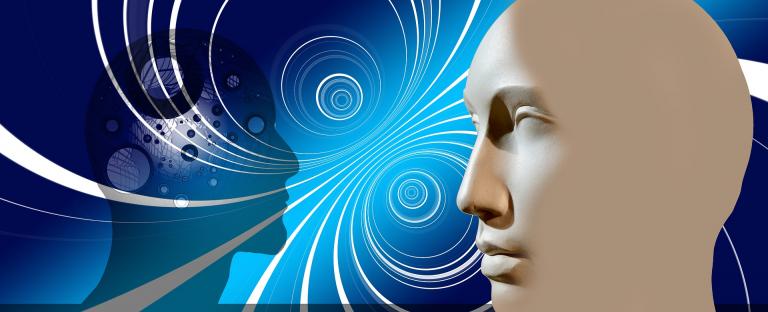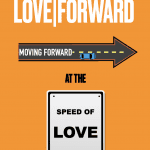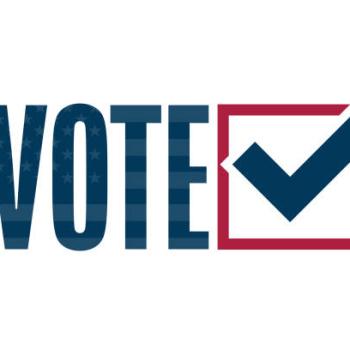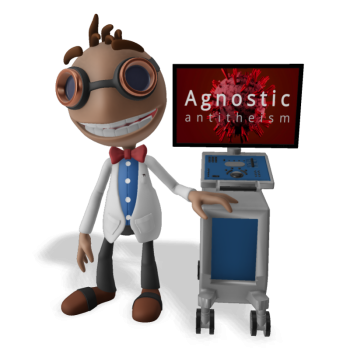 I’ve been giving a lot of thought to belief, lately. Not so much what I believe or even why I believe what I believe. Just the construct of belief, itself.
I’ve been giving a lot of thought to belief, lately. Not so much what I believe or even why I believe what I believe. Just the construct of belief, itself.
Now, there are some folks who think I’ve gone off the rails, spiritually. Some, in fact, think that I’m tilting toward agnosticism or even atheism. Nothing could be further from the truth! I believe in God and I also believe that s/he believes in me so much that s/he has decided to take up residence in me.
Back to belief.
In order to believe something, you have to have some knowledge that convinces you that what you believe is either true or, at least, asymptotically approaching truth.
Believe, then, is contingent upon knowledge. If you don’t know, you can’t believe.
This has led me to develop an operating maxim: “Knowledge is only good until it’s been superseded.”
It also led me to a single word that describes when that knowledge is superseded: Revelation.
Understanding this, I stand on what I know but I leave enough room in my knowledge base for revelation to catalyze displacement of what I once knew that I may embrace that which is superior.
It is this understanding that affords me the mindset of continuous growth. I believe that the only things that don’t grow are dead.
Which brings me to how religion negatively influences thought. Religion tells you what to believe but expects you to believe without knowledge — or believe according to inferior knowledge. In fact, religion practically tells you not to think and, if you are bold enough to do so, you’re branded as a “heretic.”
I also believe that anything that cannot withstand the scrutiny of a Google search isn’t worth believing. That’s one of the reasons that I wrote, in a previous installment, that I don’t believe in biblical inerrancy. Even a cursory Google search will dismantle biblical inerrancy; add a modicum of scholarship, and you can totally destroy it.
Nature abhors a vacuum and, if you tear something down, you need to quickly replace it with something better, otherwise something worse will take its place.
So, I want to reconstruct this by prompting you to think. Please note, I’m not suggesting what you should think but rather that you simply do. Thinking is the best way to intellectually process information. I’m also not suggesting that you ignore your feelings, rather that you consider things at least as logically as you do emotionally.
Start by questioning everything; and I mean everything! There was a season in human history when knowledge was not at all widespread but concentrated in the minds of manipulative men. I believe that when the bible was being edited, they included things that reinforced those empowered by the disparity in knowledge — like “knowledge puffeth up.”
People in the timeframe that scripture was composed didn’t have what we have. In those days, most people were illiterate and the mass production of books had yet to happen — so written knowledge was not widely available. Moreover, when knowledge was captured in writing, it was done by hand and often passed on orally, making it highly subject to error.
Today we have more computing power in the phones in our pockets than what was available to the entire American space program. We have search engines, big data, artificial intelligence, and machine learning. We are able to quickly spot both glaring omissions and patent fabrications in history and academia.
The reality is, there’s nothing wrong with knowledge. It is a tool — used properly, it can be used to help humanity by bringing dreams of societal advancement to reality; used improperly, it can be used to bring nightmares of social injustice and oppression to pass.
Once you start questioning things, this should lead you to further study and examination. Even though I consider myself a deconstructionist when it comes to spiritual matters, I tend to reverse engineer everything because understanding how things work is important to me.
If reverse engineering isn’t your bag (not everyone is cut out to disassemble complex mechanical, electrical, or literary devices), questioning and study will make you a better steward of whatever you’re entrusted with because you will understand the people or things in your care better
This understanding will also increase your own personal confidence. Why? Because you will be the true custodian of what you know. You will no longer accept either being spoon-fed or force-fed information; you will now know how to both hunt and gather and plant and reap knowledge for yourself.
When you learn, though, hold on to your newfound knowledge loosely. Leave room for both revelation and the bandwidth to process it. When you take this approach, you’ll find that there are some things that you’ll embrace and hold on for a lifetime but you’ll find others that have an expiration date.
Knowledge is good as long as it’s valid. But when a superior revelation comes along, it’s time to leave what you know for what will make you grow.















